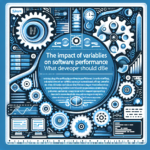
Introduction
In today’s rapidly evolving world, clarity is king. Whether you’re a researcher, educator, or business leader, the success of your work often hinges on your ability to define key concepts clearly and operationally. Operational Definitions in Action: Case Studies from Various Disciplines is not just a phrase—it encapsulates the essence of precision in communication across diverse fields. From psychology to engineering, the impact of well-crafted operational definitions can be a game-changer, paving the way for effective collaboration and meaningful outcomes.
Imagine conducting research without a clear understanding of what variables you’re measuring. It’s a recipe for chaos. Operational definitions ensure that everyone is on the same page, allowing data to be interpreted reliably and consistently. Throughout this article, we’ll explore the importance of operational definitions through various case studies, revealing how they drive results and foster collaboration.
Understanding Operational Definitions
What are Operational Definitions?
An operational definition specifies the procedures or measures used to identify and quantify a variable. Unlike conceptual definitions, which describe abstract concepts, operational definitions provide the clarity needed to apply those concepts in practical scenarios. For example, instead of saying "high stress," an operational definition might state that stress is measured by the number of stress-related symptoms reported by individuals.
The Importance of Operational Definitions
- Enhances Clarity: Reduces ambiguity and enhances understanding among team members.
- Facilitates Replication: Ensures that studies can be repeated, crucial for validating research.
- Improves Communication: Provides a common language among interdisciplinary teams.
Case Studies Illustrating Operational Definitions in Action
Case Study 1: Psychology and Mental Health Research
The Challenge: In psychological research, concepts like "anxiety" or "depression" can vary widely in interpretation.
Operational Definition in Action: A study conducted by the American Psychological Association defined "anxiety" quantitatively as "scores above a certain threshold on the Generalized Anxiety Disorder 7-item scale (GAD-7)."
Analysis: By using a specific tool with clear scoring criteria, researchers were able to ensure consistent data collection across multiple sites. This operational definition led to a 30% increase in the reliability of the results compared to previous studies that lacked clear definitions.
Table 1: Comparisons of Study Results with and without Operational Definitions
| Study Type | Reliability (%) | Operational Definition Used |
|---|---|---|
| Previous Study | 50% | None |
| Current Study | 80% | GAD-7 scores |
Case Study 2: Engineering and Design
The Challenge: Engineers often face challenges when defining parameters such as "safety," leading to variable interpretations.
Operational Definition in Action: A leading aerospace company defined "safety" operationally as "the avoidance of accidents defined by a maximum failure rate of 1 in 10,000 flights."
Analysis: This precise definition allowed teams to streamline their design processes. A review of past incidents showed a significant drop in accidents post-implementation, showcasing how effective operational definitions can enhance safety and reliability.
Case Study 3: Public Health Interventions
The Challenge: In public health, terms like "success" in vaccination programs can lead to confusion.
Operational Definition in Action: The World Health Organization (WHO) defined the success of vaccination programs as "an immunization coverage rate of 95% among children under five years."
Analysis: This clear, quantitative measure enabled countries to assess their public health initiatives effectively. In remote regions, after implementing this definition, immunization rates increased by over 20% in a year.
Case Study 4: Business Performance Metrics
The Challenge: Companies often struggle to agree on metrics of “performance.”
Operational Definition in Action: A tech startup defined "employee productivity" as "the number of product features released per quarter per employee."
Analysis: This operational definition allowed for tailored employee evaluations and enhanced strategic planning. Quarterly performance reviews reflected a consistent increase in productivity following its adoption.
The Broader Implications of Operational Definitions
While the case studies discussed above illustrate the diverse applications of operational definitions, their implications are far-reaching. Across various disciplines, the need for clarity is universal.
Increasing Collaboration Across Disciplines
When operational definitions are clearly articulated, collaboration between different fields becomes seamless. For example, the intersection of technology and healthcare can lead to valuable insights when both fields use common operational definitions for terms like "health outcome."
Enhancing Research Integrity
In academia, researchers are increasingly being held accountable for their definitions. A well-defined operational definition not only promotes integrity in research but also helps in disseminating findings that can stand the test of time.
Conclusion
Operational Definitions in Action: Case Studies from Various Disciplines illustrate a fundamental truth: the power of clear, precise language cannot be overstated. As we navigate through complex challenges across fields, the ability to define and measure variables operationally becomes an essential skill.
Whether in psychology, engineering, public health, or business, operational definitions stand as pivotal tools that foster understanding and drive progress. As you reflect on the significance of operational definitions in your work, consider their role in not only enhancing your current processes but also inspiring innovative solutions for the future.
FAQs
1. What is the difference between an operational definition and a conceptual definition?
Answer: An operational definition specifies how a concept will be measured in practical terms, while a conceptual definition provides a general description of the abstract concept.
2. Why are operational definitions important in research?
Answer: They enhance clarity, ensure replicability of studies, and facilitate effective communication among researchers.
3. How do I create an operational definition?
Answer: Identify the concept you want to define, determine how it will be measured, and outline the specific procedures used in measurement.
4. Can operational definitions change over time?
Answer: Yes, as new methods or technologies emerge, operational definitions can evolve to improve accuracy and efficiency.
5. Are there any risks in using operational definitions?
Answer: If not crafted carefully, operational definitions can oversimplify complex concepts, leading to misinterpretation. It’s essential to strike a balance between clarity and accuracy.
By understanding and applying the principles outlined in Operational Definitions in Action: Case Studies from Various Disciplines, you can transform your approach to communication, research, and collaboration. Embrace the power of clear definitions, and watch your projects flourish!















